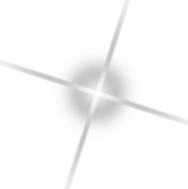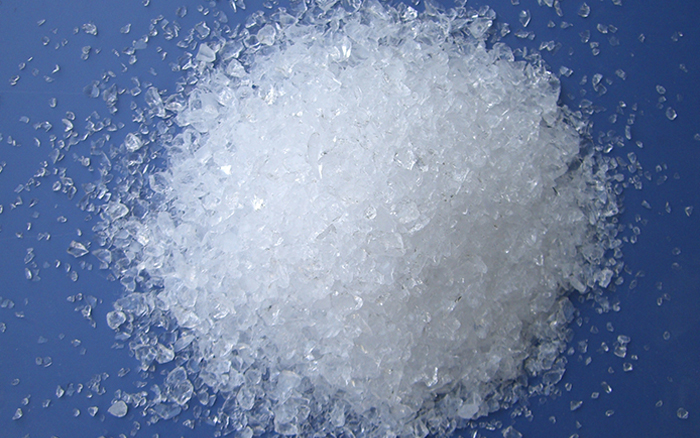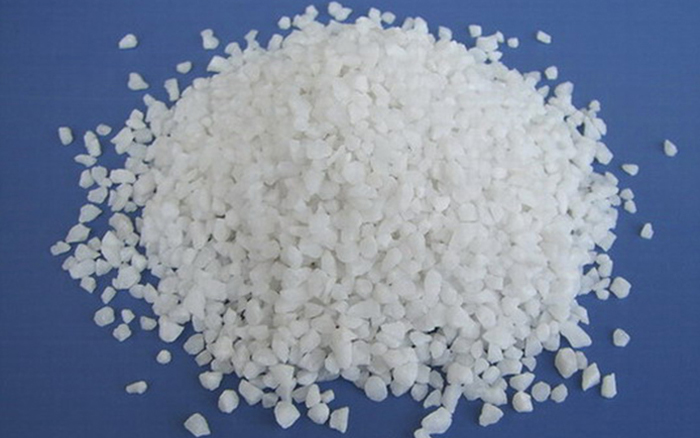Contact us
Telephone
+86-13921758228
Add:Maling Shanxi Road, Xinyi Economic Development Zone, Jiangsu Province
Tel:+86-0516-88582789
Contacts:Mr. Qiao
E-maile:xiangchun.qiao@vip.
163.com
Industry dynamics
Quartz sand is widely used and has a wide variety of types. Next, let Xinhaotai Xiaobian, a manufacturer of fused quartz sand, introduce you to the main categories of quartz sand.
The main categories of quartz sand are as follows:
1. Common varieties
Ordinary quartz sand, which has a refractoriness of 1750℃, has large particles in appearance and is covered with yellow skin. It is generally made of natural Shi Ying ore through crushing, washing, drying and secondary screening. It is a water treatment filter material. The filter material has the following characteristics: no impurities, no angle correction, high density, high mechanical strength, long service life of the sewage carrying capacity line, etc. It is an ideal material for chemical water treatment. The granularity range is 5-220 mesh and can be produced according to the granularity required by users. The main uses are: metallurgy, ink silicon carbide, glass and glass products, enamel, cast steel, water filtration, caustic soda, chemical industry, jet noise and other industries. Ordinary quartz sand filter media can play a filtering role, just like water permeates into the ground through sand and gravel. Those suspended substances in the water are blocked. The technology of quartz sand has reached the leading level in China mainly for those fine suspended substances.
2. Refined varieties
Also known as pickling quartz sand, it is made of high-quality natural quartz sand through careful selection and fine processing. The particle size ranges from 1 to 1—0.5mm, 0.5 to 0.1 mm, 0.1 to 0.01 mm, 0.01 to 0.005 mm, and can be processed according to the requirements of users. It has a wide range of applications, mainly including: manufacturing glass, making refractory materials, smelting ferrosilicon, making metallurgical flux, ceramics, grinding materials, casting quartz sand, etc. It has strong corrosion resistance to acid medium in buildings to produce acid-resistant concrete and acid-resistant mortar. Refined quartz sand is made by complex processing of refined high-quality ores. The particle size range is 5-480 mesh, which can be produced according to the user's requirements. The appearance is white or crystalline. The main uses are: advanced glass, glass products, refractory materials, smelting stones, precision casting, grinding wheel grinding materials, etc. (mm is Bomi)
3. High purity varieties
Mainly uses the high quality natural quartz stone, after carefully selects, the fine processing forms. The particle size ranges are mainly: 1-0.5 mm, 0.5-0.1 mm, 0.1-0.01 mm, 0.01—0.005mm, which can be processed according to user's requirements. The main uses are: manufacturing glass, refractory materials, smelting ferrosilicon, metallurgical flux, ceramics, grinding materials, casting quartz sand, etc. It has strong acid medium corrosion resistance in buildings to prepare acid-resistant concrete and acid-resistant mortar. (mm is Bomi)
4. Melted varieties
Chemical composition: SiO299.9-99.95%, Fe 2o 35-25ppm max, Li2O 1-2PPM max, Al2O320-30PPM max, K2O 20-25ppm maxna2o 10-20ppm max (ppm in parts per million).
5. Silicon micropowder
Silicon micropowder: the appearance is gray or grayish white powder with refractoriness > 1600℃. Bulk density: 200 ~ 250kg/m3.
Quartz sand is mainly divided into ordinary varieties, refined varieties, high purity varieties, fused varieties and silica micropowder.
|
PREV:What are the uses of quartz powder?
NEXT:Method for purifying quartz sand |
Go back |








